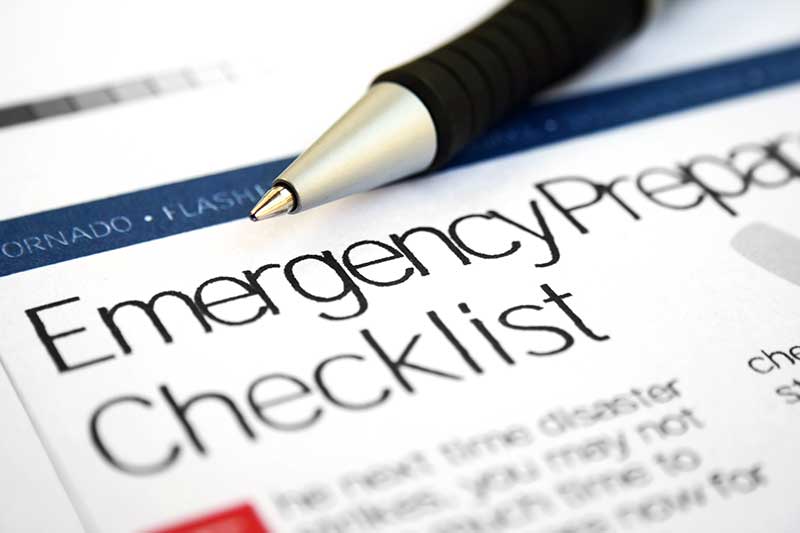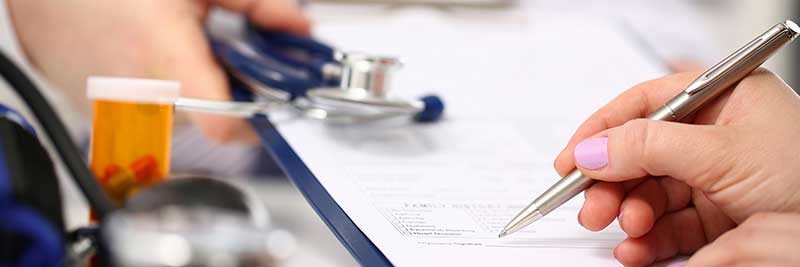The current opioid epidemic is complex and mainly fueled by emotional and physical pain. In the United States, the opioid crisis is worsening. Overdose deaths continue to increase yearly, and more people are becoming addicted to opioids. One of the main reasons people are dying is the influx of fentanyl through our southern borders. While there are many treatment options for opioid addiction, not all are effective, and very few are accessible to most. Naltrexone detox may be a good option for those struggling with opioid addiction. Read on to learn more about naltrexone therapy, detox, and its benefits.
Naltrexone vs Naloxone – Understanding the Differences.
Naltrexone and naloxone are both medications used to treat opioid addiction, but they work in different ways.
Naloxone is an opioid antagonist, which means it binds to the opioid receptors in the brain and blocks the effects of opioids. Naloxone is primarily used to reverse opioid overdoses and is often administered in emergency situations by first responders or medical professionals. It quickly counteracts the effects of opioids, such as slowed breathing and loss of consciousness, and can restore normal breathing and consciousness within minutes. Naloxone is available in different forms, including nasal sprays, injectable formulations, and auto-injectors, and it is often carried by people at risk of opioid overdose, as well as their family members and friends.
Naltrexone, on the other hand, is a medication that blocks the effects of opioids by binding to the opioid receptors and preventing opioids from activating them. Naltrexone is used to treat opioid addiction and is often used in combination with other treatments, such as behavioral therapy and counseling. It is available in several forms, including tablets, injections, and implants. Unlike naloxone, naltrexone is not used to reverse opioid overdoses, but rather to prevent relapse and help people in recovery from opioid addiction maintain abstinence.
For over 25 years, people from all over the world have chosen Waismann Method as their opioid detox provider.
We know the challenges you face and the importance of creating a unique and personal experience for you right from the start.Call for Detox Options 1-800-423-2482
Both naloxone and naltrexone have important roles to play in addressing the opioid epidemic. Naloxone is a crucial tool in preventing opioid overdose deaths, while naltrexone is an effective medication for treating opioid addiction and preventing relapse. It’s important to note that these medications are not interchangeable and should not be used in place of each other. Rather, they should be used as part of a comprehensive approach to addressing the opioid crisis, along with prevention, education, and other treatment options.
Recognizing Patient Needs
We understand the pressures put on ER doctors and staff in this crisis. We also recognize that ER personnel does not always have the necessary time or training to deal with patients suffering from addiction and pain management issues. Subsequently, there is a common and harmful disconnect in fully comprehending the fragility of these compromised patients.
Desperate times call for extreme measures. We cannot continue to provide medical treatment that is inadequate to the patient’s needs. The lack of individualized care puts people in a revolving door of failed attempts to feel better, leading to hopelessness and more intense drug use.
Opioid Use Disorder Treatment Solutions
We should use emergency events to provide people with a newfound path to health and hope. Once patients are physically stable, a dedicated hospital unit should be available instead of discharging them back to a desperate situation. One that can help individuals assess their emotional and physiological needs. It will serve as a safe environment where people will feel listened to and understood, and treatment options will be readily available. It should be where patients get to stay until their opioid withdrawal is complete and naltrexone therapy has begun.

It is wise to discuss-plan programs while in treatment. A good treatment plan results from individualized comprehensive psychological, psychiatric, and medical assessments. Successful drug treatment should be to heal and improve people’s lives. It is time to replace old judgmental and addiction-prolonging methods with available medical science. Treatment programs that are highly personalized, nurturing, and comprehensive.
Continuing care and support should extend beyond the naltrexone detox phase. Ongoing counseling, medical support, and other therapeutic resources are essential to a long-term healing process. Providing people with tools to explore underline issues, effective communication methods, and coping skills are essential for maintaining a healthy life.
We have the knowledge and resources to save lives; let’s use them.
Waismann Method® – An Opioid Treatment Program Ahead of Its Time
Opioid Detox in a Private Accredited Hospital
In a full-service, JCAHO-accredited hospital in Southern California, we provide access to many specialized physicians, nurses, and other healthcare professionals to administer naltrexone therapy. The Joint Commission on Accreditation of Healthcare Organizations (JCAHO) is a non-profit organization that sets strict quality medical facilities standards. Medical institutions are evaluated based on highly high criteria and receive accreditation only when meeting these gold standards in healthcare.
Quadruple Board Certified M.D.
Under the leadership of our medical director Dr. Michael H. Lowenstein, Waismann Method® has been a pioneer in advancing medical opiate detoxification and rapid detox treatments for over two decades. Waismann Method® provides medical detox treatments for opioids and alcohol in a private hospital, giving patients round-the-clock medical care. Our patient-first approach prioritizes individualized care and superior medical protocols.
Individualized Medical Detox Protocol
Comprehensive and private opioid detox is the first step to successfully recovering from drug dependence. An inpatient naltrexone detox can prevent unpleasant withdrawal symptoms or dangerous consequences from sudden opioid cessation. The goal of an in-hospital naltrexone-assisted detox is physiological stabilization and support as the body rids itself of opioid drugs.
Board-certified doctors assist with unpleasant withdrawal symptoms while managing vital signs and other physiological responses. Relieving the discomfort of drug and alcohol withdrawal symptoms is integral to successful detoxification. Unfortunately, many people who try to detox on their own rarely succeed. Instead, they relapse and feel hopeless. Waismann Method® offers a safe, humane, and effective way of becoming opioid-free.
The Importance of a Supportive Recovery
After medical opioid detox, people feel hypersensitive; chemically, their body is trying to regulate at many levels. It is important to remember that the person becomes incredibly vulnerable during this adaptation period. Also, opiate abuse causes the body to cease its natural endorphins. Consequently, after an opioid detox, people do not handle discomfort well. They tend to feel raw, not just physically but also mentally. Emotions and sensations tend to feel more intense when these symptoms are not adequately attended to. Things can rapidly escalate, leading to anxiety, desperation, and immediate relapse. Having adequate support in this initial period allows people to find balance and strength without unnecessary risk.
Once patients have completed their Naltrexone-Assisted Detox at the hospital, we provide integrative recovery therapies to assist with the critical post-detox adjustment period. A recovery center should help each recover from the unique condition(s) that they are suffering from. As human beings, our DNAs, history, and requirements are unique, and distinct recovery approaches should be applied based on the recovering individual and not on pre-set ideas.
Naltrexone Detox
Following an opioid detox, naltrexone therapy is initiated to eliminate cravings, reducing relapse risk. Naltrexone is a non-addictive and non-mood-altering opioid blocker. The drug dramatically reduces physical cravings, helping patients maintain a life free from opioid dependence. Naltrexone also serves as a security blanket, a powerful aid in getting patients through the challenging first weeks at home post-detox. Without intense cravings and physical dependence, people can focus on treating the emotional or physical aspects of their lives, which led them to opioid use in the first place.
Some of the Benefits of Naltrexone Detox:
- Detox from opioids safely and effectively.
- Start regaining your health and vitality within a few days.
- Withdrawal symptoms and cravings are medically managed.
- No opioid replacement drugs are necessary.
Waismann Method® Will Help You Get Where You Need to Be
The fear and suffering from opioid withdrawal are often why people continue using or are unsuccessful at self-detoxing. A comfortable and safe inpatient detox program like the Waismann Method® provides patients with a nearly 100% detox success rate. After rapid detox, most patients choose a naltrexone injection, Vivitrol, or daily oral therapy.
If you or a loved one is currently suffering from opioid use disorder, it’s important to remember, more than ever, that you are not alone. Don’t allow stigma or fear to keep you from getting where you need to be. At Waismann Method®, we know that opioid use disorder is a reversible medical condition, and we treat it as such. Call today for the professional help you need with the compassion you expect.







